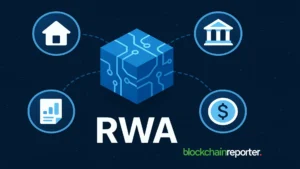
The startup company Cryptosat, which is developing a Trusted Execution Environment for use in space, has successfully completed a seed funding of $3 million. The company intends to use the funds that it has received from the private round to promote its objective of building cryptographic applications that are physically isolated and housed in an orbiting spacecraft.
Cryptosat’s goal of a tamper-proof root-of-trust achieved by complete device isolation struck a chord with investors who took part in the company’s private round of funding and was led by the company’s co-founders, Yonatan Winetraub and Yan Michalevsky. Along with Inflection, GoAhead Ventures, DoraHacks, and the founders of Phala Network, Protocol Labs participated in the pre-seed raise. Protocol Labs is well known for its support of Filecoin and the development of IPFS.

Cryptosat has already started exploring the possibility of developing collaborations with other firms who are keen on the development of a trusted execution environment in space. Among these is the creation of a Random Beacon for the Velas blockchain, which will allow for the generation and transmission of trustworthy randomness from outer space.
Unlock New Opportunities In The Realm Of Computing
Protocol Labs is also collaborating with Cryptosat to test out time-based cryptographic primitives hosted in space. These primitives include Verifiable Delay Functions (VDFs). These have the ability to open up new doors in the field of computing, as well as guarantee the highest levels of trust and transparency, and their applications range from blockchain technology to the protection of online transactions.
By employing its own satellites, which it has constructed from the ground up, Cryptosat is able to guarantee that no other party has tampered with the computing environment prior to the satellite’s deployment into orbit. This offers a one-of-a-kind guarantee that the operations that are carried out aboard the satellite cannot be tampered with by any parties, not even nation-state actors.
In response to this partnership, the Chief Executive Officer of Velas, Farkhad Shagulyamov, stated that Random Beacons ought to be unpredictable and impervious to any kind of manipulation. He stated that the company is confident that their relationship with Cryptosat would assist them in developing a high-quality Random Beacon, which is unique within the contemporary crypto market and does not have any counterparts.
Yan Michalevsky, one of the co-founders of Cryptosat, has stated that the company offers unrivaled integrity, secrecy, and authenticity guarantees when performing the most sensitive cryptographic activities. These guarantees are made possible through the utilization of space, which offers the highest possible level of physical protection.
Powering Blockchain & Cryptographic Protocols With Satellites
Given the necessity to demonstrate the inviolability of the procedure and reassure consumers that there has been no interference, trusted setups are among the most crucial components of cryptography. In particular, trusted setups are used as bootstraps for common SNARK systems, the safety of which is based on this crucial stage in the conception process.
Since a trustworthy arrangement in outer space eradicates the prospect of a physical hack or an entrance into a network, the region near Earth’s orbit has emerged as a new front in the fight to develop unbreakable cryptography. Satellites that are used to power blockchain and other cryptographic protocols are built and launched by Cryptosat. Since they are not physically reachable, satellites are ideally suited to play the role of the most secure root-of-trust, which ensures the privacy and authenticity of critical computations and data.
These tamper-proof satellites have the potential to serve a wide variety of use cases, such as transaction signing, trusted configurations for cryptographic algorithms, a randomness oracle, a time-oracle (VDF), and many more. The members of the Cryptosat team have experience in aerospace engineering, applied security, and cryptography. Yonatan Winetraub and Yan Michalevsky are both Stanford PhD alumni and are founding members of the company.
In 2018, they published the SpaceTEE paper, which was the first to offer the concept of making use of small satellites for the purpose of securing critical cryptographic operations and protocols. It was in May of 2022 when they successfully put their first satellite, Crypto1, into orbit. An experiment carried out by the team aboard the International Space Station was successfully concluded in March of 2022. More information can be found on the Cryptosat Medium publication.









